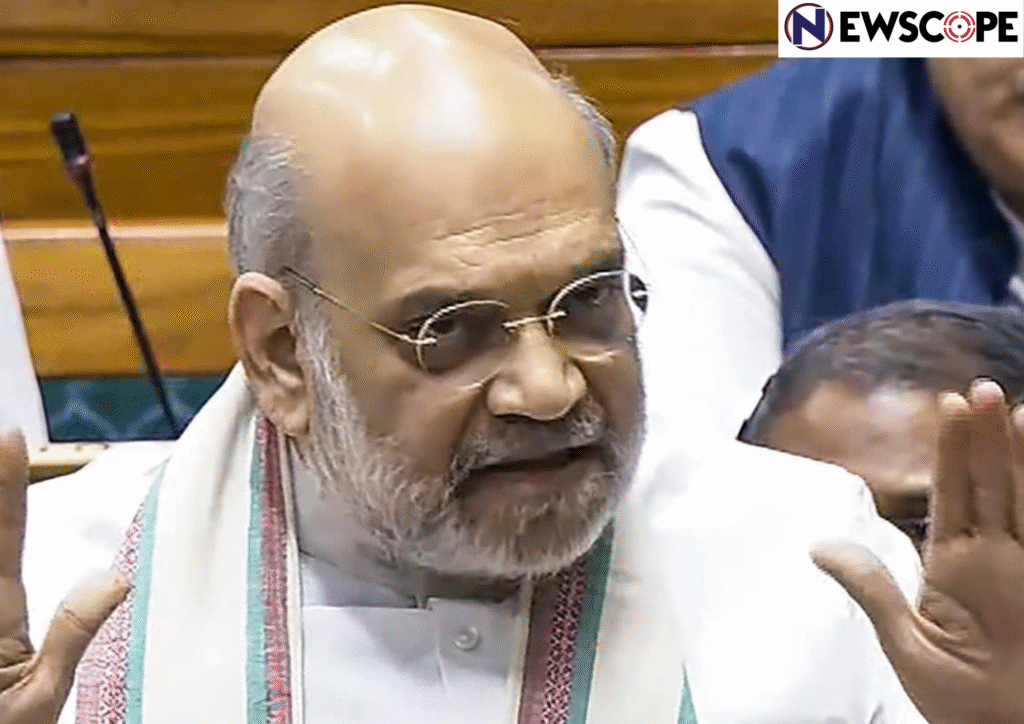Union Home Minister Amit Shah is set to introduce three bills on Wednesday aimed at addressing corruption allegations against incumbent ministers. Among them, Shah is likely to table the 130th Constitutional Amendment Bill, which will introduce Section 5A to Article 239Aa to address the issue of the removal of elected representatives—prime ministers, chief ministers, and ministers, etc—arrested or detained on serious criminal charges. This, sources say, could avoid a situation like Delhi, where Arvind Kejriwal continued to be the chief minister while in custody.
The Home Minister will also introduce the Union Territory Administration Amendment Bill, 2025, and the Jammu and Kashmir Reorganisation Bill, 2025. The 130th Constitutional Amendment Bill states, “In Article 239AA of the Constitution, after clause (5), the following clause shall be inserted, namely:—5A….”in case of the Chief Minister, who for any period of thirty consecutive days during holding the office as such, is arrested and detained in custody, on allegation of committing an offence under any law for the time being in force, which is punishable with imprisonment for a term which may extend to five years or more, shall tender his resignation by the thirty-first day after such arrest and detention, and if he does not tender his resignation, he shall cease to be the Chief Minister, with effect from the day falling thereafter.” Kejriwal had not resigned for nearly 6 months while in the custody of the ED and CBI in the alleged liquor scam case.
The proposed amendment makes the same provision in case an incumbent prime minister is arrested and kept in custody for 30 days.
“In case of the Prime Minister, who for any period of thirty consecutive days during holding the office as such, is arrested and detained in custody, on allegation of committing an offence under any law for the time being in force, which is punishable with imprisonment for a term which may extend to five years or more, shall tender his resignation by the thirty-first day after such arrest and detention, and if he does not tender his resignation, he shall cease to be the Prime Minister with effect from the day falling thereafter,” the amendment to Article 75 states.
The proposed amendment to the Constitution provides for PMs, CMs, or ministers to return to their posts if released from custody. “Nothing in this clause shall prevent such Chief Minister or Minister (or Prime Minister)from being subsequently appointed as the Chief Minister or a Minister, by the President, on his release from custody, as per clause (5),” the proposed amendment states.
Tamil Nadu’s Senthil Balaji was another case where, even after arrest, the minister continued in the council.
While the government proposes to send the bill for larger consultation to a joint parliamentary committee, opposition protests are likely.
“What a vicious circle! No guidelines for arrest followed! Arrests of opposition leaders rampant and disproportionate. New proposed law removes incumbent #CM etc immediately on arrest. Best way to destabilise opposition is to unleash biased central agencies to arrest oppo CMs and despite being unable to defeat them electorally, remove them by arbitrary arrests!! And no ruling party incumbent CM ever touched!!” Congress’s Rajya Sabha member and senior advocate Abhishek Manu Singhvi posted on X.
Singhvi had represented Kejriwal when he was granted bail by the apex court.
In section 54 of the Jammu and Kashmir Reorganisation Act, 2019, after sub-section (5), the following sub-section shall be inserted: “A minister who is arrested and detained in custody for any period of thirty consecutive days, on allegations of committing an offence under any law currently in force, punishable with imprisonment for a term of five years or more, shall be removed from office by the Lieutenant Governor on the advice of the Chief Minister, by the thirty-first day of being taken into custody.”
A similar section is being included in the UT Act (Clause 5A to be added to Section 45).
The statement of objectives and reasons for the Jammu and Kashmir Reorganisation Bill explains the rationale for this measure.
“The elected representatives embody the hopes and aspirations of the people of India. It is expected that they rise above political interests and act solely in the public interest and for the welfare of the people,” the statement reads.
It adds that the character and conduct of ministers holding office should be beyond any suspicion. “A minister facing allegations of serious criminal offences, arrested and detained in custody, may undermine constitutional morality and principles of good governance, and ultimately diminish the constitutional trust reposed by the people in him.”
The statement further notes that since the Jammu and Kashmir Reorganisation Act, 2019 (34 of 2019) lacks provisions for the removal of the Chief Minister or a minister arrested and detained on serious criminal charges, there is a need to amend section 54 of the Act to establish a legal framework for their removal in such cases.
The listing of the bill has sparked intense speculation about the potential restoration of statehood for Jammu and Kashmir.
